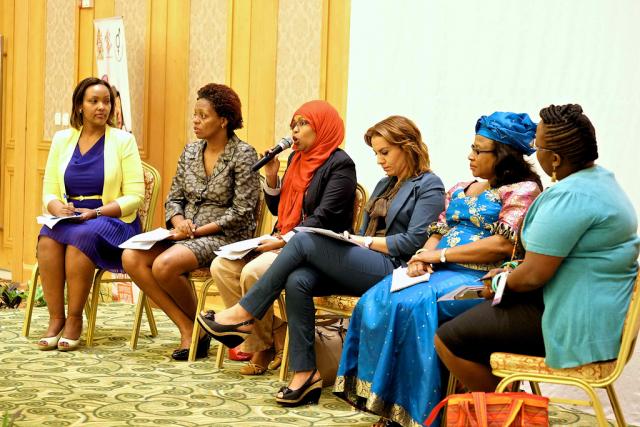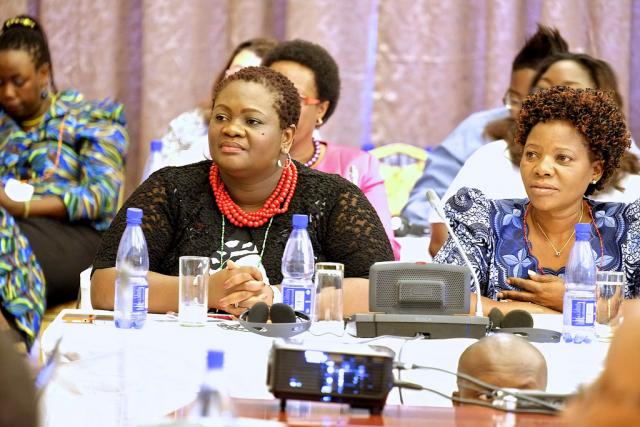“Powering the African Dream”: An Urgent Action Fund-Africa Leadership Initiative
From September 9th-11th 2013, Urgent Action Fund-Africa (UAF-Africa), along with their partners, organized the Women Steering Innovative Leadership in Africa Conference (WSILA) in Lilongwe, Malawi. The groundbreaking International Conference convened 300 women and men from over 30 African countries working in diverse fields and thematic areas to discuss the role of women in shaping the discourse of ‘African leadership’ on the continent. The conference set to invigorate the approach to leadership by drawing examples from “traditional” and “non–traditional” leadership sources.

The three day conference whose tagline was “Powering the African Dream,” aimed to address the obstacles to women’s integration into leadership, contribute to the process of bringing gender equality issues to the centre of national priorities, and build the expertise of African women leaders to impact on significant socio-political, economic and environmental issues. The leadership conference also provided participants the opportunity to strategize, debate, network, and craft solutions with global and regional feminists and thought leadership advocates while appreciating the trends and critical analysis in the global leadership arena.
On its first day, a session was held on the journeys of feminist transformative leaders, during which participants were taken through a process of reflection on how and when they became aware of their leadership qualities, and how that had translated into the leaders they had become using the feminist leadership model as propagated by Srilata Batliwala. The session also explored the challenges and successes of a feminist leadership approach to movement building.
The second day focused on the theme of Young Women’s Leadership in Africa. The session highlighted several insights on young women’s leadership, including the observation that while young women may be inexperienced leaders, they were making daily complex private decisions which is what leadership in all spheres is about. The session also recognized that young women in Africa are excluded from leadership and decision making on issues that affect them. An in depth discussion ensued on the manner in which this exclusion is further exacerbated by protectionist policies and increased regulation of young women’s sexual and reproductive health rights, including policy contradictions. The conference consciously sought to weave in young women’s leadership throughout the conference through presentations of young African women leaders of their leadership journeys, while holding concurrent sessions on topics ranging from women’s leadership and information and communications technologies (ICTs) to women leading the economic growth agenda.
In addition, the second day focused on the theme of women in politics, during which the experience of women’s leadership in post-conflict Liberia was shared, specifically the development of the “Women’s Situation Room”, which was developed during the Liberian 2011 elections. The room was manned by prominent, authoritative, eminent women of Liberia who observed Liberia’s elections and had access to the Women’s Situation Room where they reported incidents that they came across that would, or had the potential to, cause friction, fraud, violation of electoral laws and the Liberian Constitution. As these incidents were reported, they were resolved by members of the room. The Women’s Situation Room has been successfully replicated in Senegal, Sierra Leone, and Kenya and has been adopted by The Gender is My Agenda Campaign (GIMAC) of the African Union as a best practice.

Throughout the second day, 7 concurrent sessions were held, including “Women Defining Leadership in Conflict and Post-Conflict Settings” session, where participants shared knowledge and experiences of feminist leadership in order to help re-define leadership in conflict and post conflict settings. In addition, participants discussed and suggested new directions of feminist and transformative leadership. Another session entitled “African Ethics and Values: Redefining Pan-African Leadership”, initiated a dialogue on African cultural values and practices in leadership and management, and examined the contributions women make in improving governance and management in Africa.
The third and last day, focused on the theme of capacitating future young women leaders, in which a session was held on mobilizing resources for women’s rights in Africa. The session examined the politics of funding and the manner in which it negatively affects the women’s movement in Africa. The session suggested that when it comes to funding, the greatest successes achieved by women, is when they are collaborating on bold and strategic initiatives. The session also examined some of the difficulties of supporting women’s organizing in countries such as Algeria and Ethiopia due to restrictive laws and policies.
Lastly, participants identified areas for follow up and proposed action to be taken to achieve the objective of growing women’s leadership that will improve African women’s leadership and impact the continent’s development. Participants also drafted an action plan for each thematic area including: Growing Transformative Leadership, Peace and Security, Women and the Economy, and Women in Politics. It is the hope that the Women Steering Innovative Leadership in Africa initiative will infuse new energy and prompt, bold and daring ideas among UAF – Africa partner organisations.
For more information on the Conference, please visit www.urgentactionfund-africa.or.ke and www.womenleadingafrica.net


